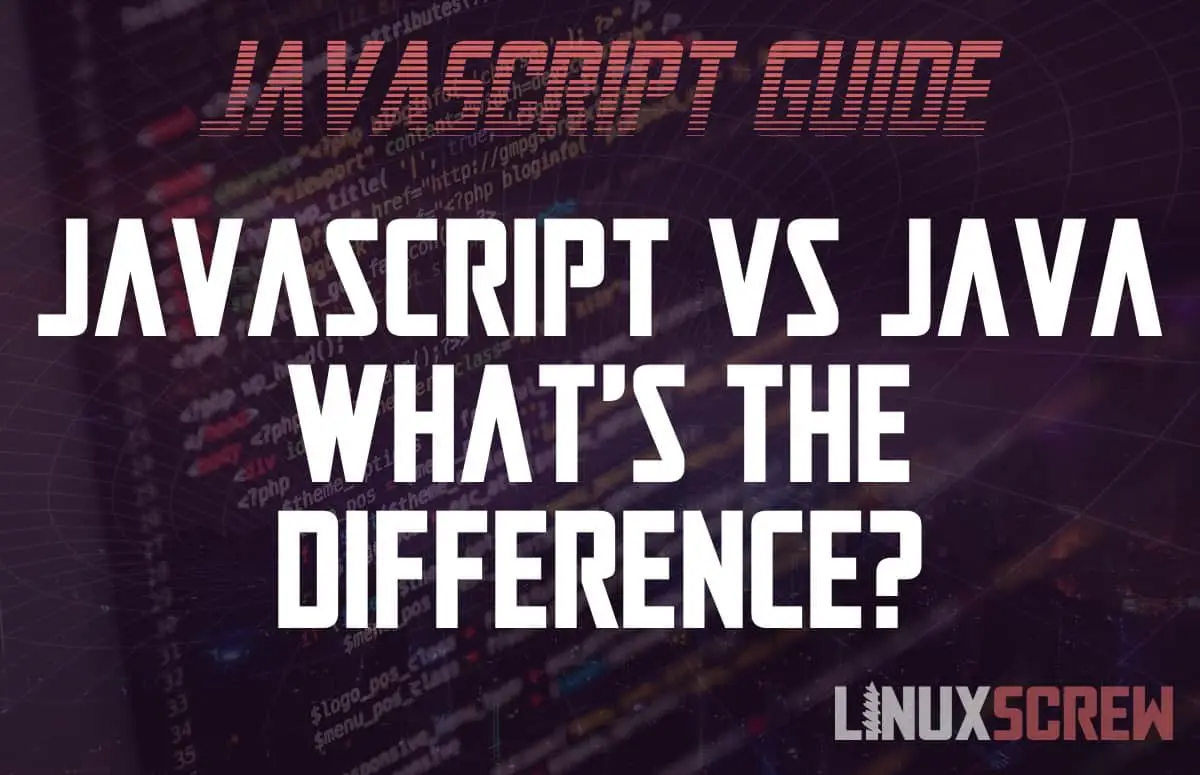Here’s a clear article on what makes Java and JavaScript different – and some information to help you make the choice on which to learn and use for your projects in 2021.
First up, it’s important to clarify that JavaScript and Java are not the same things!
They just have similar names. It’s stupid, and they should have called JavaScript something else (and tried to re-badge it ECMA Script, which is also a terrible name), but the JavaScript name stuck. Now we’re all stuck with two different programming languages with pretty much the same name.
JavaScript and Java are separate languages that are wholly independent of each other and use different syntax and run in different places.
What is JavaScript?
JavaScript was developed in the mid-1990s for the Netscape web browser. It was intended to be used to add interactive elements to web pages – things like buttons that make a click sound when clicked, pop-up overlays, drop-down menus, and spinning text.
It rapidly grew to be used to power all sorts of browser-based tools, from games to email clients to full office application suites.
Over time it has been developed into a full-featured programming language, which can even be run outside the web browser and can now be used to develop desktop and mobile applications which run independently of a web browser.
JavaScript is popular with mobile app developers, website developers, and home tinkerers.
We’ve already compared and explained JavaScript to other similar-sounding languages and frameworks in the following articles:
- TypeScript Vs. JavaScript – What’s the Difference & Which Should You Use?
- jQuery vs. JavaScript – Differences? Which is Better?
- The Difference Between JavaScript and Node.js – Which Should I Use?
What is Java?
Java is a completely different programming language developed in the early 1990s by Sun Microsystems (may they rest in peace).
Java doesn’t run in a web browser, but code written in Java on one platform can work on another as Java executes inside a virtual machine – a virtual environment that smooths over the differences in different operating systems and lets code written once run anywhere.
Due to this, it has become very popular, especially with client-server web applications that need to run on various platforms.
Java is popular with professional organizations looking to build large, networked applications – and is a popular learning tool at universities.
Which One Should I Use?
As always, no one language can always be directly compared to another.
Both JavaScript and Java are incredibly popular as they both serve different needs – so you’ll need to consider that when choosing.
The syntax differs between them, but one is no more complex than the other once you get past some beginner hurdles.
Here are some dot-points about what both Java and JavaScript have in common:
- Both are object-oriented with a simple, readable syntax
- Both have free development tools and learning resources
- Both can be run almost anywhere, but js wins (Cordova)
- Both are popular with many learning resources, but js wins
If you’re looking to develop desktop or client/server applications with high reliability, are looking to enter an industry where Java is the standard, or are just looking to learn and aren’t concerned about being able to run your code on Apple mobile devices, Java is a fine choice.
If you’re looking to do all of that but also want to build fancy websites with animations, run your code on Apple devices, and are less concerned about industry suitability – JavaScript will suit you well.
Historically, there were big differences between the two. As JavaScript can now run outside of the browser and be used to build mobile apps with tools like Ionic Framework – the use-cases for both languages have become quite similar.
Which one you use really just depends on whether you expect to need to write code for a specific industry that uses Java, whether you want to use JavaScript to build websites, or are just tinkering at home.

